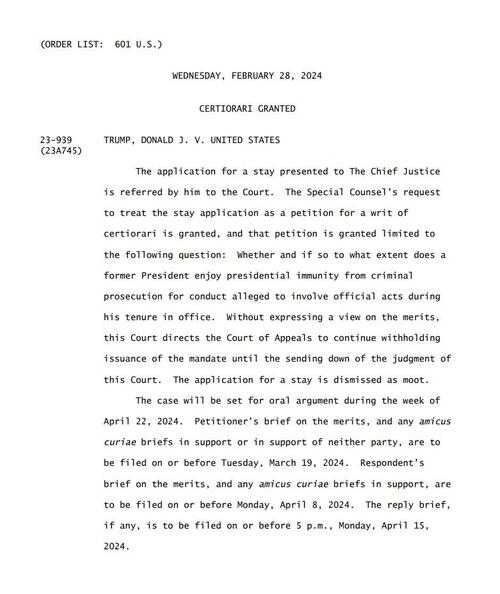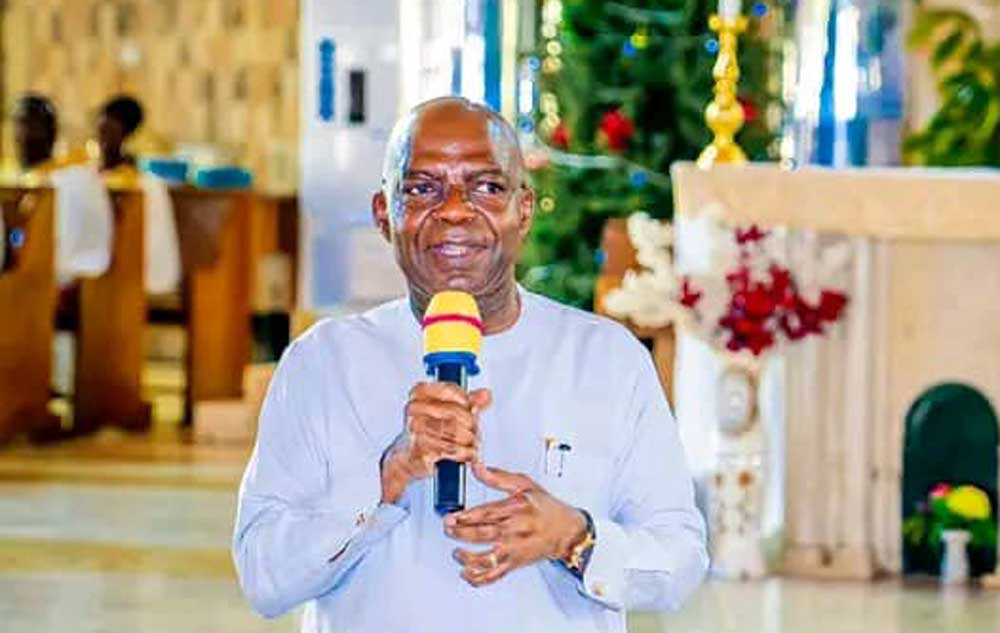Victims of a $1.2 million fraud scheme perpetrated by staff at cash aid NGO GiveDirectly in the Democratic Republic of the Congo say their lives were upended by debts and broken promises, and remain so long after the fraud was discovered in January 2023.
“This fraud has complicated the lives of many residents,” said one mother of six who enrolled in the aid programme but received no payments, speaking on condition of anonymity out of fear she could be disqualified from any future assistance.
“Many have plunged themselves into debt that they should have avoided, believing they would pay it off once served by Give,” said the woman, one of 12 victims The New Humanitarian interviewed in late 2023 near the town of Minova in South Kivu province.
The aid programme they thought would help them was suspended after GiveDirectly staff stole recipients’ SIM cards while setting up their mobile money accounts. The cash aid NGO said the fraud penetrated every department of its DRC office and diverted payments from 1,900 families.
More than a year after the programme was put on hold, GiveDirectly says it is now preparing to resume the original payments promised but has no plans to compensate victims for debts or other losses they say they incurred due to the aid that never came.
“We are unable to provide financial compensation outside of the promised transfers,” Tyler Hall, GiveDirectly’s communications director, told The New Humanitarian. “The primary remedy for negative impacts of the pause is to restart transfers for all recipients as soon as is safely possible.”
Eight of the victims interviewed said that after the promised payments failed to materialise, they were left coping with debt, loss of property, or broken relationships with family members and neighbours.
Four victims who did receive several months of payments described improvements in their lives, only to see those cut short when GiveDirectly detected the fraud and suspended payments, leading to debts and disputes with neighbours.
Although the individuals who spoke with The New Humanitarian represent a small fraction of the nearly 2,000 families whose payments were diverted by fraudsters, most of the victims interviewed said their experiences were common among other GiveDirectly recipients they knew of in their villages.
The mother of six, who lives about 12 kilometres outside Minova, said that before signing up to receive payments, she earned money transporting crates of drinks on her back from town to town. Believing a payment from GiveDirectly was on the way, she quit the job and took out a loan to start a new business selling her own drinks, which she believed would be more lucrative. But the payment never came.
She said the person who lent her the money confiscated her phone, which she had received from GiveDirectly, as well as the title to her family’s plot of land, which she gave away without telling her husband.
After her husband found out she had given away their plot, he left her and their children, whom she said she can no longer provide for.
Hall said the organisation has been documenting similar reports from recipients.
“Families suffering financial and emotional strains is an upsetting consequence of having to pause the programme,” he told The New Humanitarian. “Our hope is that as families start receiving funds again, they’ll be able to resolve some of the issues you’ve highlighted.”
He said GiveDirectly is also attempting to assist affected recipients by referring them to local organisations focusing on domestic conflict, medical and mental healthcare, and malnutrition, as well as to local authorities.
But while many victims welcome the resumption of funds, others see the lack of compensation for losses as falling short of the principle of “do no harm”.
“These people are below the position they were when you engaged with them,” said a person familiar with cash transfers in fragile states, who requested anonymity to protect working relationships. “There’s an ethical imperative, if harm has occurred in that process, which can happen, to try and make good, and make good promptly.”
“Rather than feeding us false promises,” the mother of six told The New Humanitarian, “Give should have left us alone.”
‘Weakening social cohesion’
GiveDirectly’s aid was meant to be life-changing for families in South Kivu facing extreme poverty, malnutrition, food insecurity, and unemployment, the organisation told The New Humanitarian back in May 2023 when it revealed the fraud.
DRC has one of the world’s largest populations of people living in extreme poverty. In the country’s east, which includes South Kivu province, nearly 6 million people have been displaced by violence involving dozens of armed groups, including the Rwanda-backed M23 rebel group.
GiveDirectly had set aside around $7 million for 5,000 households in South Kivu. Recipients were meant to receive one-time transfers of $392, and then $40 per month for the next two years.
Christelle Kahindo Maneno, 26, said she had been studying to be a seamstress before GiveDirectly arrived in her village of Kishinji, but her family could not afford to buy her a sewing machine. After her mother received the initial payment from the organisation in September 2022, they immediately bought a sewing machine, which she now uses to make skirts and blouses to sell.
“I am no longer dependent on my parents,” she told The New Humanitarian. “Sometimes it even helps me feed my family.”
But even for recipients who received payments, GiveDirectly’s abrupt suspension of funds caused new problems. Two recipients in different villages said they organised joint savings funds – known as likelemba – with their neighbours. The members of the likelemba would pool a portion of their aid payments every month and give the pooled funds to one member on a rotating basis. This was meant to give each member access to a larger amount up front than they would have received from GiveDirectly each month – enabling them to jump-start investments into small business ventures.
“If Give had respected its commitments, their assistance would have triggered a surge of development in our villages, especially with these savings and mutual credit assistance initiatives, initiated by women.”
When GiveDirectly suspended payments in early 2023, some members of the likelemba had already received their payouts, but others had not, and there were no incoming funds to continue the rotation.
“This has created conflicts for us because we no longer know how to serve [the remaining members] to finance their income-generating activities,” Kahindo Maneno told The New Humanitarian, adding that some members of the likelemba in her village asked police to help them get reimbursed.
“If Give had respected its commitments, their assistance would have triggered a surge of development in our villages, especially with these savings and mutual credit assistance initiatives, initiated by women,” she said.
Kasongo Kaboyi, a fraud victim who serves as chief of Kanyamitero village, said around 80 households in the village received none of their promised funds, while others who received payments ended up putting them in likelemba that ended prematurely.
“Some of those who received [payments] mock the others, accusing them of being unlucky,” Kaboyi said. “It may seem trivial, but this matter of stigmatisation is serious, and it risks weakening social cohesion.”
‘There was no danger’
GiveDirectly said the fraud was “only possible because of a specific change we made in our payment process in order to work in this remote, insecure region” of DRC.
Instead of allowing recipients to register accounts in person with local mobile money agents, the organisation assigned its own staff to register the accounts on behalf of the recipients, allowing the staff to pocket the SIM cards and divert the transfers.
“We made this exception in the interest of protecting these recipients, relieving them of an extra journey through potentially dangerous areas,” GiveDirectly said in a statement released in June.
But while this exception would have saved recipients a single trip to register their mobile money accounts, those who wanted to withdraw cash would still need to travel to mobile money shops, Hall acknowledged.
“In retrospect, it was clearly the wrong decision given it opened up a vulnerability that allowed for bad actors to target the system.”
He also said GiveDirectly teams were not instructed to explain to recipients why staff were registering their mobile money accounts.
When The New Humanitarian informed victims of GiveDirectly’s reason for allowing staff to register their mobile money accounts, several disputed the notion that they needed to be spared a trip at all.
“There was no danger in going to mobile money shops,” said a victim living in a town on the coast of Lake Kivu, who spoke to The New Humanitarian on condition of anonymity so as not to put future payments at risk. “We go there for other business, and there is no danger.”
Another victim told The New Humanitarian that there are mobile money shops “everywhere in Minova centre… and you could get there without difficulty”.
“The villages where the beneficiaries live are not far from the centre of Minova, and the roads are currently safe,” said Jean Pierre Weragi Kalibanya, president of the civil society federation of Buzi, a group of villages near Minova, speaking in September 2023. “You wouldn’t be afraid to move around.”
Hall clarified that about a quarter of recipients in the South Kivu programme live 1-2 hours by mototaxi from the nearest trading centre. These remote communities, he said, struggle to access trading centres because of road conditions, flooding, costs of travel, and security concerns.
He said GiveDirectly staff had also been assigned to register recipients’ mobile money accounts in a previous programme in Walungu, also in South Kivu province, where no fraud was detected.
“Our aim was to create a safer and more streamlined process for recipients to provide them the highest quality experience,” he told The New Humanitarian.
“At the time, we thought making this exception was the right decision, on balance,” he said. “But in retrospect, it was clearly the wrong decision given it opened up a vulnerability that allowed for bad actors to target the system. As we’ve emphasised before, we’re committed to learning from this mistake.”
Restarting payments
While the area around Minova was relatively safe when the fraud was taking place, the humanitarian situation in South Kivu worsened after GiveDirectly suspended its programme there. As of December 2023, more than 1.5 million people in the province are displaced, many by militia violence and flooding, according to the UN’s emergency aid coordination body, OCHA.
Nonetheless, Hall said, “we do not foresee this preventing us from restarting payments this year”, despite the fact that recipients who need to register mobile money accounts will now be required to travel to do so in person.
“[Recipients] want the programme to resume; they need the programme to resume. They’re frustrated, frankly, that we haven’t been able to restart sooner.”
Stella Luk, GiveDirectly’s regional director for North and West Africa, said the organisation has strengthened its safeguards against fraud, including introducing machine learning algorithms to detect suspicious behaviour, strengthening community engagement, making whistleblowing channels more accessible, hiring a vice president of safeguarding risk and compliance, and commissioning external reviews of its fraud prevention systems in DRC and across the organisation.
“[Recipients] want the programme to resume; they need the programme to resume,” Luk said. “They’re frustrated, frankly, that we haven’t been able to restart sooner. We feel that, and we are committed to restarting. We do need to do so responsibly and safely.”
With humanitarian crises growing more protracted and complex, most people prefer the flexibility and efficiency of cash and voucher assistance (CVA) over in-kind aid, according to the 2023 State of the World’s Cash report, published by the CALP Network.
The volume of CVA has increased every year since 2015, totalling $10 billion in 2022, or 21% of international humanitarian assistance, the report said.
However, the practice comes with its own risks. And fraud, corruption, and diversion of assistance were listed as the third-highest risk associated with CVA, behind inflation and targeting challenges.
Since 2009, GiveDirectly has delivered more than $700 million in cash to over 1.5 million people, and currently runs programmes in Bangladesh, DRC, Kenya, Liberia, Malawi, Mozambique, Morocco, Nigeria, Rwanda, Uganda, and the United States, according to its website.
In its June statement, the organisation explained its decision to provide aid in the “remote and insecure environment” of eastern DRC: “It’s not enough to be able to safely deliver donations in stable states like Kenya or Malawi when we know most people in extreme poverty will soon live in much harder environments.”
Charlie Goldsmith, a senior consultant at the management consulting firm Abyrint who has experience designing and running cash programmes, said GiveDirectly’s response to the fraud, including the organisation’s decision to report it quickly and proactively, was a sign of competence.
“Not everyone would even have known something like this had happened to them, nor had the guts to take on the access, security, targeting, and payment delivery challenge of paying people in eastern DRC in the first place,” he told The New Humanitarian.
Some of the victims and recipients who spoke to The New Humanitarian said they wanted payments to resume, but others had already lost hope.
The mother of six said she contacted GiveDirectly’s office in Goma multiple times in the months she was supposed to receive payments to report the problem.
“They are only calling on us to be patient,” she said in late September. “But a whole year of patience? It’s too much, we have fallen into despair.”
Claude Muhindo Sengenya reported from Minova in the Democratic Republic of the Congo. Jacob Goldberg provided additional reporting from Bangkok, Thailand. Edited by Paisley Dodds, Josephine Schmidt, and Andrew Gully.








